Robin Hood
Dilemma
"It’s better to make the poor richer than to make the rich
poorer" ― Winston Churchill
Legend of Robin
Hood
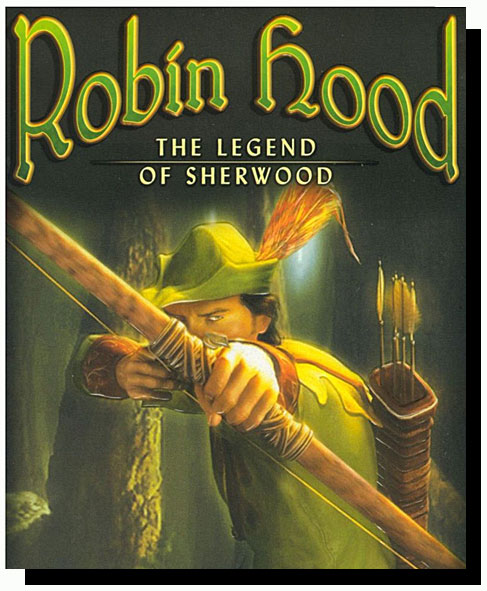
After the fall of the Roman Empire (c376-476CE)
money disappeared and people were at the mercy of invaders. To pay for protection the owner gave his land to the
noble but was allowed to use it during his lifetime. The noble’s power was based on the land he held in feud.
The legend of Robin Hood rose out of the chaos during the reign of King John of England. Medieval Europe was a time
where everyone lived by feudal obligations.
The mythical Robin Hood character (and his outlaw “The Merry Men”) probably
originated from 'Robin of the Woods’ of 13th-century plays. Robin appears as an anti-establishment rebel who
stood for justice, liberty and the rights of the people against unjust laws, the tyranny
of the nobles and King John, the corrupt church, idle rich cronies, and the feudal system itself. He’s a
champion of the underclass, sticking it, shooting it and slashing it to the ‘greedy’ elites.
The
Dilemma
By murdering government agents and robbing wealthy landowners Robin Hood has
morally/ethically done wrong. He has violated the Kantian Categorical
Imperative. To put it more succinctly, in a court of law the prosecution would ask “did
you kill or steal?” Your reply can only be ‘yes’ or ‘no’ and not followed by “well, yes, but it was for a
good reason…”. So, the Robin Hood dilemma comes down to:
Is it ethical to use unethical means to achieve something
good?
Cultural statistic: “51%” of the U.S. population agree that it
is not good to steal from the ‘rich’ and “49%” agree that it is acceptable to steal from the 'rich' to give to the
'poor' (says a lot about the forces within the current divide in the public square). To inquiry about the morality
of wealth redistribution it’s best to specify: according to
whom?
Sidenote: A poll conducted by Debate.org asked the question
"Are all humans equal?"
No: 52% Yes: 48%
Kantian
View

Immanuel
Kant's fundamental formulation in ‘The Categorical Imperative’, a theory of morality,
states:
“Act in such a way that you treat humanity, whether in your
own person or in the person of any other, never merely as a means to an end, but always at the same time as an
end.”
According to Kantian moral theory, the act of robbing someone
becomes, in essence, treating a person as a means to produce a result. Kant was explicitly against that
behavior and that people should only ever be used as ends. Kant would turn Robin Hood into the
authorities, as robbing is a morally bad action, no matter the intentions. Kant would not look at the situation as
a whole and would not take into account the overall pain and overall pleasure caused by the action. He would only
look at the action itself, which normally is considered a 'bad' or morally wrong thing to do. He argues that
if it is right for one man to rob, it should be right for anyone to rob, as the action should be considered alone,
and the circumstances cannot change how moral the action is.
Thomas Aquinas View
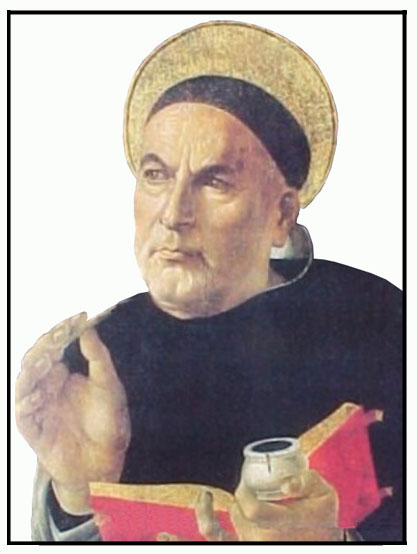
Thomas Aquinas
created the Natural Law theory by using Aristotle's
philosophy and applied it to Christian
thinking. Aquinas, like Kant, would most likely given Robin Hood to the authorities. As robbing is not a
'natural' human function, Aquinas would have deemed it as immoral. The man did not 'have' to rob the ‘rich’ or a
‘bank’ to give to charity. If he really needed to give to charity and he thought the charity needed the money
badly, he could have donated his own money, or held a fundraiser for the charity to benefit from. If the man
could not afford to give to the charity himself or organize a fundraiser, he could have spread awareness, or not
given to the charity at all.
Utilitarian View
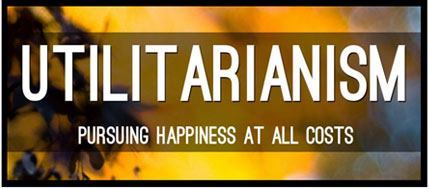
From a Utilitarian
point-of-view Robin Hood’s actions are deemed righteous because they have achieved a good and, as the
justification goes, ‘made the world a better place’. In the end, to ‘steal from the rich to feed the poor’
(vigilante wealth redistribution) is a kind of calculus of utility − to figure out what
one should do based on what there is to gain or loss in the process. If the
consequences are acceptable, then one is willing to do wrong to do good, even to commit an act of murder.
The Utilitarian justifies Robin Hood’s actions since, to them, the laws governing
society in medieval England were unethical because they were made by the rich and powerful to make sure that
they remained rich and powerful and also to make sure that the poor "99%” can't gain
power.
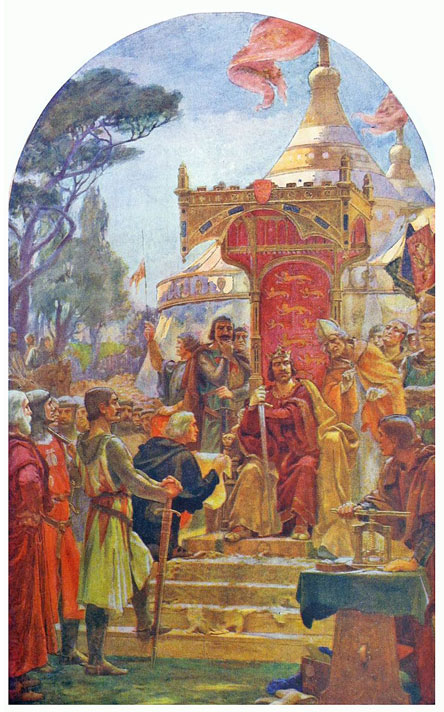
Stepping aside from the romantic, ‘Hollywood’ story of the
Robin Hood legend, the real history is that, true, the poor serfs were powerless to change their condition, it was
the rebellious major landowners (the barons) that waged war against King John of England (1215-1217) which
ultimately led to the Magna Carta or Great Charter (protection of church rights, protection for the barons from
illegal imprisonment, access to swift justice and limitations on feudal payments to the Crown). The ‘spirit’
of the Magna Carta led to the banishment (and execution) of the absolute, tyrannical monarch Charles I (1649;
raised taxes without the consent of parliament; removed members parliament without due process – clause 39 of the
Magna Carta); to the liberal philosophy of the Glorious Revolution (1688; greater parliamentary supremacy); to the
creation of the Declaration of Independence (1776) and the US Constitution (1787). Benjamin Franklin even
used the Magna Carta's phrase “No Taxation without Representation,” in his debates with King George of England. The
18th-century was the final phase in the history of the hierarchical feudal society. The old system of classes
determined by birth and in having a privileged nobility came to an end.
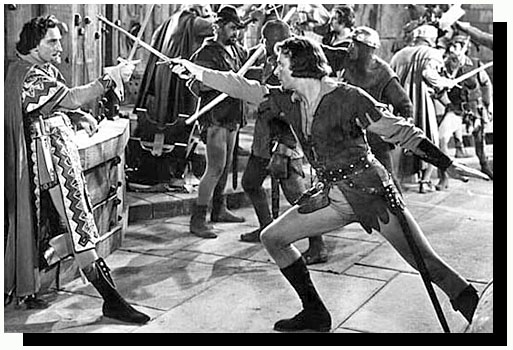
Can a case be made for Robin Hood’s swashbuckling antics as the
first step along a long road to the breakdown of the ancient feudal system of government? For myth making
Hollywood, sure. The reality is the crimes Robin and his band of outlaws committed were burglaries, arson,
assaulting clergymen, and murdering travelers. The nature of their brutal law-breaking behavior was slowly eroded
throughout history where Robin’s character was made into a domesticated hero against the ‘corrupt’ elites – a
romantic story that a ‘Utilitarian’ mindset could admire and relate to.
Situation Ethics View

Situation Ethics, developed by Joseph Fletcher (1905-1991), considers the context of
an act rather than a strict, linear judgment according to an absolute moral standard (ie, Categorical Imperative,
10 Commandments). The main principle, outlined in Fletcher's book, "Situation Ethics", states that "all laws and
rules and principles and ideals and norms, are only contingent, only valid if they happen to serve love in the particular
situation, and thus may be broken or ignored if another course of action would achieve a more loving
outcome.”
Situation Ethics argues the only way of deciding if an action is moral or
immoral is by looking at the circumstances and all the other variables. Of course, there are many interpretations
of what it means to be ‘loving’ or ‘compassionate’. Who
does the calculating? What is their qualification and experience? How do you resolve conflicting subjective
interpretations? Is Robin Hood really fighting for social justice, or just to regain what has been taken from
him? Possibly he is for the people, but not of the people, just a ‘champagne socialist’ who practices
philanthropy with other people’s money. Looking at another ‘variable’ - did the serfs approach the barons
to force King John to terms?
Metaphysical View

When we set out to incarnate there
was a two-fold purpose: to advance spiritually and perfect ourselves, and to return this infinite experience
back to the Creator as emotion and feeling. We all come in with "Life Themes" for the
purpose to perfect ourselves and to perfect for God. There are ‘positive’ themes (eg, healer) and ‘negative’
themes. An example of a 'negative' Theme is the 'Irritant' The Irritant is very important to everyone’s perfection,
because in being with them or observing them, we learn all manner of Themes (eg, Patience, Tolerance, etc).
Judas', in the Bible, theme was 'Pawn'. His
betrayal of Christ was ultimately a critical element in the birth of Christianity. In a negative or positive
way, Pawns actually cause something of usually great magnitude to happen.
The point being, everyone’s theme(s) will resonate, in some fashion or another, to a
prescribed ethical/moral view.
It’s about how one emotionally and intellectually understands their position and their grounding in what is
ethical or moral. There is no ‘right’ or ‘wrong’ – it’s a personal imperative that
gives one the conviction of knowing you are doing the right thing regardless of others or society says.
But, as the saying goes, “to be righteous, you need to be right”.
Ok, so some of you may be thinking ‘what in the wide world of
woo-woo is going on here?’ Fair enough. The Golden Seat does it’s best to keep the ‘woo-woo’ to a minimum. As
discussed in the "Lengthy
Story" the Golden Seat's ‘Frame of Mind’ is spiritual - Spiritual Discovery before going to
the "Undiscovered
Territory".
‘Atlas Shrugged’ View
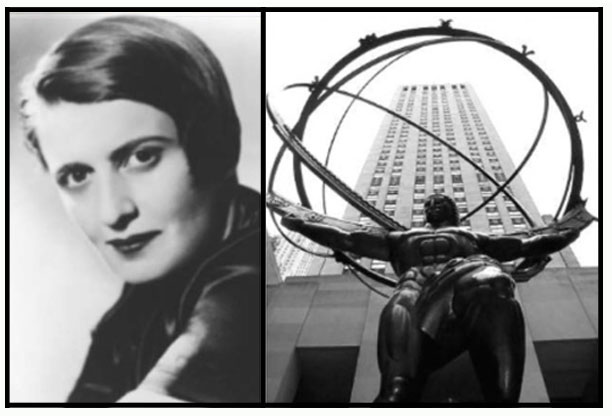
In Ayn Rand’s classic epic novel “Atlas Shrugged”, Ragnar Danneskjold is a brilliant
philosopher who chooses to fight the looters as a pirate. He robs their ships and restores the wealth to the
people who produced it. Danneskjold is the opposite of Robin Hood: he robs the poor and gives to the rich − he
takes from the parasitical and restores wealth to the productive. He condemns Robin Hood as “immoral and
contemptible” and “the symbol of the idea that need, not achievement, is the source of rights, that we don’t have
to produce, only to want, that the earned does not belong to us, but the unearned does”.
Sidenote: Ayn Rand’s ‘Objectivism’ philosophy is an
example of the “Orange” meme (Achievist-Strategic) of Spiral Dynamics' "Levels of Cultural Psychological
Existence". Orange Theme: Act in your own self-interest by playing the game to
win. “Green” meme (Communitarian-Egalitarian) is the next ‘level’ after “Orange”. Green Theme: Seek peace
within the inner self and explore, with others, the caring dimensions of community.
z
| 







